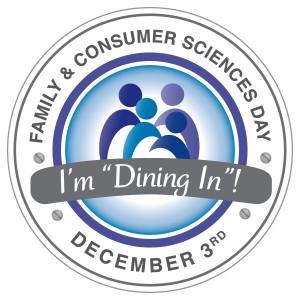
by Heidi Copeland | Jun 24, 2021
“
I’m BORED!” is not a statement a parent/caregiver wants to hear just days into summer break! Boredom is a feeling. The feeling of being unsatisfied or uninterested can lead to boredom. Boredom can also result from too much time on your hands. Boredom may occur when you do the same thing over and over again. Boredom can affect both physical and mental health and, let’s face it, it is not just kids who get bored!
Nevertheless, boredom, like any feeling, is important to recognize and manage. In fact, people who are good at noticing how they feel and adjusting (self-regulating) their behavior are more likely to do well in school and life, have healthy relationships, and manage difficulties and setbacks – boredom included.
How can we combat boredom? We can counter boredom with constructive activities. Constructive activities are those that require a bit of personal output, or something one actually has to do.
Therefore, before your summer vacation takes a nosedive, think of ways to ward off the doldrums. Know, too, that watching too much screen time can only make boredom worse because screen time, for the most part, is a passive type of activity/entertainment. While there is certainly a place for passive engagement (watching a movie, for instance, or reading a book), you do not have to do anything! Moreover, when the body and mind are not actively engaged for hours on end, things can go downhill… quickly. Many find actively or constructively doing something satisfying can enlighten your body, your mind, and your soul.
Think about it… while reading a book is passive, your mind is 100% active; the same goes for a movie or your favorite show. However, being engaged, like talking to someone about what you are watching or reading, takes the passive activity to a new level; talking about the activity makes it more constructive because you get really involved in it by sharing. It’s the non-participatory part repeated hour upon hour that can cause the negative effect. The body needs a balanced diet of both passive and constructive activities.
Constructive activities help activate your body, mind, and soul. So, before boredom happens, take a proactive approach to finding a solution before the problem starts. Of course, the internet is full of ideas; some of them are quite good! Personally, I like the approach where the set up requires a few easy to use resources that can quickly engage the user.
Parents and caregivers should help model the behavior they want their charges to follow. Knowing a few tricks to turn passive activities into constructive ones will help the long, hot summer be the best one yet.

by Julie McMillian | Apr 1, 2021
Have you thought about your mental and emotional health lately? If you haven’t, it’s a great time to take some time to invest in you. Emotional wellness is the ability to handle and overcome challenges and obstacles that we often must deal with in everyday life. It doesn’t mean you will always be happy, but you are aware of and in control of your thoughts, behaviors, and actions when you have negative feelings or setbacks. Research shows that emotional health is a skill. There are many ways to improve and maintain your emotional health so you can adapt to changes as they happen.
Tips for Emotional Wellness:

Spend time with loved ones to strengthen your relationship.
Photo credit: UF/IFAS
- Stay positive. Purposely develop a positive mindset and hold on to the positive emotions and appreciate the good times as long as you can. Focus on your outlook. Ask yourself: What gives me inner peace? What gives me purpose? Remember to forgive yourself and others for making mistakes.
- Reduce stress. Stress can push you to your limits. It can also motivate you with a rush of energy when needed. It is important to eliminate long-term stress, if possible, and strive for balance. Learn what relaxation techniques work best for you. Deep breathing, meditation, and exercise are healthy ways that could provide release. Set priorities and don’t be afraid to ask for help when needed.
- Take care of your physical health. Plan to eat healthy meals, get enough rest, and exercise. Your physical health directly relates to your mental health. There are so many things we want to fit into a day but there’s not always enough time. Establish set times to help keep you on track. Avoid too much caffeine, alcohol, and stimulants, especially late in day when it could affect your nighttime routine.
- Strengthen your relationships. Build strong connections with your partner, family, friends, neighbors, and co-workers. These social relationships help us to find purpose and meaning. Join a group focused on a favorite activity or hobby. Take a class and learn something new. Volunteer in your community and share positive habits with others. Others can have powerful effects on our health and link us to opportunity.
- Think before you act. Be aware of your emotions and reactions so you can harness them when you are triggered, or something is bothering you. Notice what makes you happy, sad, or mad, and take a few minutes to think before you address or try to change a situation. It’s okay to express your feelings to others and not keep everything within. We must be mindful of how it comes across or affects the other person. Take a walk or some deep breaths and allow yourself to process during a difficult time.
How you feel can affect your daily activities and relationships. People who have good mental health can still have mental illness, so remember to consult your doctor for ongoing concerns. There could be chemical imbalances that need the right kind of treatment. There are also counseling and support groups that can help when you need extra support. It’s up to you to start making healthy choices and taking control of your overall wellness. I hope you feel encouraged and take steps to develop resilience in the face of adversity. For more information on healthy living or other Extension-related topics, you can contact your Family and Consumer Sciences Extension Agent at your local UF/IFAS Extension Office.
Sources:
https://www.nih.gov/health-information/emotional-wellness-toolkit
https://edis.ifas.ufl.edu/topic_mental_health

by Melanie Taylor | Mar 26, 2021
Did you know that over the past ten years, the National Institutes of Health (NIH) has been a partner in research to determine the physical and mental benefits of having a pet? It turns out that pets not only steal our hearts, but they can contribute to better cardiovascular health. Studies have shown that the bond between people and their pets can increase fitness, lower stress and bring happiness to their owners. Regular walking or playing with pets can decrease blood pressure, cholesterol, and triglyceride levels. Pets can also help manage loneliness and depression by giving us companionship. This was helpful to many people suffering from loneliness during the pandemic. In fact, between March and July of 2020, there was a surge in pet adoptions and some shelters could not meet the demand. Since people had more free time, less socializing, and lots of alone time, many people found a pet was just what they needed to fill that void.

Cali, a tortoiseshell cat, posing to get attention.
Photo Source: Melanie Taylor
Although many of us are slowly returning to the normal stresses of daily life, a pet can still give us those same health benefits. Just think about it: on those stressful days with busy work schedules, running kids around town to their activities, etc., what’s better than being greeted at your door in the evening by a dog with a wagging tail or a cat’s purr as they snuggle with you? Of course, do not forget those unique pets, such as birds, bunnies, hedgehogs, reptiles, fish, and lots of other furry and scaly friends of ours.They all greet you in their own special way.
On a safety note, always remember pets can carry harmful germs that can make us sick even when the pet appears healthy. People with compromised immune systems and pregnant women should always take extra precautions when interacting with pets. Some tips on staying safe and healthy around your pets are to always wash your hands after handling your pets and be sure to maintain your pet’s health by regular visits to the veterinarian. Also, practice good pet hygiene by keeping pets out of the kitchen, cleaning their toys, beds, food, water/food bowls, etc., regularly sanitizing areas the pets frequent, and, of course, cleaning a cat’s litter box daily and picking up dog poop outside and disposing of it properly. When pets are added to your family, always teach your children how to properly interact with the animal(s). Small children should always be supervised when interacting with any pets.

Sonny, a tabby cat, enjoying play time with his mouse toy.
Photo Source: Melanie Taylor
On a fun note, if you are a pet owner, you already celebrate your pet(s) everyday, but there is an annual day of celebration for our pets. National Pet Day is April 11, 2021. This is an extra special day to give your pet extra snuggles and maybe even an extra treat. Be sure to use this day to remember why your pet is so special to you and your family. Reminisce about your pet memories while giving him/her extra attention and maybe even share your special memories on social media. People love seeing pictures of pets. It makes everyone’s day brighter. Here are the top four ways people report making National Pet Day special for their pet, 1) I give my pet a special treat, 2) I tell my pet “I love you”, 3) I buy or make a special gift for my pet, and 4) I let my pet sleep in my bed with me. (https://nationaltoday.com/national-pet-day/)
So, be sure to remember your pet this National Pet Day in April.
To see the importance of pets in our lives and families be sure to check out the interesting insights below from surveys about people and their pets.
Interesting Insights about People and their Pets:
- 95% of pet owners say their pets are part of the family.
- 94% of families with an autistic child benefited from having a pet.
- 67% of households in the United States have a pet. Americans spend approximately $75 billion a year on pet care and products.
- 44% of people reported they would rather cuddle with their pet than their partner.
- 22% of Americans are attracted to people who treat their pet like a family member.
- 11% of Americans hang out with their pets (ex. watch TV, read books, etc.).
- 10% of owners are allergic to their pets.
- 10% of Americans consider their pet to be their best friend.
- 10% of Americans talk to their pet in a special voice.
- 10% of Americans carry on conversations with their pet.
As April approaches and spring weather arrives, be sure to get outside with your pets and enjoy some stress relief, feel the sunshine on your face, smell the fresh blooms, and take in the beauty of nature around you. It will provide positive health benefits for you and your pet as you take a long, relaxing walk together. If your pet is an indoor only pet, be sure to sit in the floor and play with your pet like you did when they were kittens, etc. They will love the extra time and closeness with you. No matter what type of pet you have, be sure to let them bring you happiness and relaxation, and you, in turn, can help them live their best pet lives possible.
Sources:
Center for Disease and Prevention (CDC):
https://www.cdc.gov/healthypets/health-benefits/index.html
National Today:
https://nationaltoday.com/national-pet-day/
The Washington Post:
https://www.washingtonpost.com/nation/2020/08/12/adoptions-dogs-coronavirus/

by Judy Corbus | Nov 30, 2020
As the holiday season gets underway, shopping for gifts may be on the top of your To Do list. While there is usually no shortage of suggestions for the kids on your list, you may be stumped about what to give to your neighbor, co-worker, best friend, or favorite aunt.

Fresh fruit makes a healthy, colorful gift.
UF/IFAS Photo: Thomas Wright.
Here are a few ideas to get you started:
Fruit basket: Give the gift of health with a basket of fresh fruit – apples, oranges, and grapefruit are seasonal favorites loaded with vitamin C and make convenient snacks or a tasty, colorful complement to any meal. If the recipient has experienced some financial challenges this year, consider tucking in a grocery store gift card to help stretch their food budget.
Gifts of Service: If your gift-giving budget is smaller this year, give of yourself! Give gift certificates for a free housecleaning to an elderly neighbor or relative, a free car wash, pet sitting for a weekend, mowing the lawn, walking the dog, a plate of your famous brownies, or an evening of child care, to name a few. These also make great gifts for children and teens to give. Download gift certificate templates online or design and decorate your own.
Magazines: A magazine subscription is a gift the recipient can enjoy throughout the year. Check renewal offers that come with your favorites – many publishers offer free or greatly reduced gift subscriptions when you renew your own.
Donations: We all have that one hard-to-shop-for person on our list – they have everything or aren’t involved in any hobbies. Or perhaps they have downsized to a smaller home and have limited space for “things.” Consider donating in their honor to one of their favorite charities or causes. There are several humanitarian organizations that provide needed supplies to persons in Third-World countries and even here in the U.S. Your donation can purchase a “share” of a farm animal that can provide income for a family, or you can select school supplies, clothing, sports equipment, or other items to benefit persons in need. Gifts of this kind always fit, take up no space in the recipient’s home, and help others in the spirit of the season. To check how well a charity uses donations for their intended purpose, visit the IRS Searchable Database of Charities, Charity Navigator, or Guidestar.org.
Gift giving doesn’t have to be expensive. With a little creativity, you can celebrate the season with fun, meaningful, budget-friendly gifts! Happy Holidays!

by Melanie Taylor | Nov 24, 2020
2020 has been a year of many changes and challenges due to the Coronavirus pandemic, which unfortunately will continue into our holiday season. To protect our friends, family and community members we must continue following the science-based guidelines provided by the Centers for Disease Control and Prevention (CDC) and your state and local guidelines to prevent exposure and the spread of the virus.
Unfortunately, the Covid-19 epidemic numbers are rising again. Gatherings of any kind, both small and large, are contributing to the rise in positive cases. We can all make choices based on the scientific research that can protect us and others by making small changes in our 2020 holiday celebrations. Limiting the risk and being diligent in our actions should be our main goal until a vaccine is approved and dispersed throughout the country.

Holiday Dinner
Photo Source: UF/IFAS
Some unique and easy ways to celebrate the holidays this year are to “gather virtually” with those not in your immediate household or to gather in-person only with members of your own household. These two types of gatherings offer the lowest risk for spreading the virus. Your household is anyone who currently lives and shares common spaces in your home. People who do not currently live in your home, such as college students who are returning home from school for the holidays, should be considered part of different households. In-person gatherings that bring together family members or friends from different households, including those college students returning home, offer varying levels of risk. The level of risk is difficult to determine because people may have been exposed and/or are a carrier and may not be aware of it.
Here are some specific things to consider when deciding how to celebrate your holidays.
- Number of cases in your community – Be sure to know the number of positive Covid cases in your community. If the numbers are rising or are already high you should take precautions based on the data. You can check your specific county or city Covid rates at your local health departments website.
- Exposure during travel – Airports, bus stations, train stations, public transport, gas stations, rest stops and hotels are all places travelers can be exposed to the virus in the air and on surfaces. Be aware if you will be traveling or if you have guests traveling to your home.
- Location of your gathering – Indoor gatherings, especially those with poor ventilation, expose your family to more risk than outdoor gatherings.
- How long will your gathering last? – Time is an important factor to consider. The longer the gathering lasts the more risk those attendees will have of being exposed. Being within 6 feet of someone who has Covid for a cumulative total of 15 minutes or more greatly increases the risk of becoming sick and requires a 14-day quarantine.
- Number and crowding of people at the gathering – Gatherings with more people bring more risk than gatherings with fewer people. The size of a holiday gathering should be determined based on the ability of attendees from different households to stay 6 feet (2 arm lengths) apart, wear masks, wash hands and follow state, local, territorial, or tribal health and safety laws, rules and regulations.
- Behaviors of attendees before the gathering – People who do not consistently follow social distancing, wearing masks, regular handwashing and other prevention behaviors cause more risk than those who consistently practice the recommended safety measures.
- Behaviors of attendees during the gathering – Gatherings with more safety measures in place, such as mask wearing, social distancing and handwashing, offer less risk than gatherings where fewer or no preventive measures are being implemented. Use of alcohol or drugs may alter judgment and may make it more difficult to practice Covid safety measures.

Be sure your technology is charged and ready for your virtual holiday visit. Photo Source: Kendra Zamojski
Other high-risk holiday related activities to avoid to help prevent the spread of the virus:
- Going shopping in crowded stores.
- Participating or being a spectator at a crowded parade, race or other holiday celebration.
- Attending large indoor gatherings with people from outside of your household.
- Using alcohol or drugs that may alter judgment and make it more difficult to practice Covid safety measures.
Things to consider before your gatherings:
To make the holiday less stressful be sure to practice a virtual session before the virtual holiday gathering. Make sure everyone involved knows how to connect to the virtual holiday celebration so the gathering will go more smoothly and hopefully experience less technical problems on that day.
We all had to adapt to many unexpected changes this year and the holidays will be no different. Just remember being diligent now will protect family and friends and help control the spread of the virus in our communities. Be sure to enjoy your unique holiday season this year, but here’s hoping for a less challenging 2021.
Stay safe! Enjoy your family and friends from a safe distance! Happy Holidays!
Source:
CDC: https://www.cdc.gov/coronavirus/2019-ncov/daily-life-coping/holidays.html

by Angela Hinkle | Nov 23, 2020
Dining out with family was the thing to do when we were so busy doing so much outside the home. Now that we’re spending more time at home together, dining in is in again. You can start or continue the “in” thing by taking the pledge to dine-in healthy with your family this December 3rd. Why take this kind of pledge? Keep reading.

FCS Dine In Day
Making and keeping a promise has an upside
Keeping the commitment you made to eat healthy with your family means you get to reap the rewards of actually providing a healthy meal for your family. Additionally, keeping this promise can boost your self-confidence and self-esteem because you know you’re making strides to take care of yourself and your family.
Become popular
Since dining in is in again, eating healthy with your family December 3rd makes you the admired one to your family and friends. As you dine in together, share praises and compliments as well as healthy foods, and reinforce the feeling of belonging. After providing these trendy experiences often enough, you can begin to enjoy the adoration and respect of others around you. You can be popular.
It’s cherished time
Schedule it. Block off time for it. Show up for it. You and your family are worth it. Start with the pledge on December 3rd. For best success for a healthy lifestyle change, make it a S.M.A.R.T. goal. That’s one that is Specific, Measurable, Attainable, Relevant, and Time-framed. Here’s an example: Every Tuesday at 6pm, our family will eat a healthy meal together that includes at least two vegetables and a whole grain.
You can keep it safe
- If ventilation indoors is a bit stifling, eat outdoors when you can. Backyards, patios, and porches are great venues for your dining experiences.
- Clean your hands often as you prepare and eat your meal. If you can’t wash for 20 seconds with soap and running water, hand sanitizer is a good backup. Make sure your hands are completely dry after washing or sanitizing.
- Cook foods to the proper temperature. See the Safe Internal Temperature Chart.
- Put leftovers away as quickly as possible.
Tried and true or something new
- Have fun. Try decorating to make your mealtime together special. Let all family members participate.
- Make comfort food. But also try making something you’ve never had before, or try food prepared in a new way.
- Look through the cabinets or in the garage for kitchen equipment you haven’t used in a long time or have forgotten you had. Then use it.
For better health and wellness, make the pledge to Dine In with your family this December 3rd. Now is the time – especially since dining in is in again.














